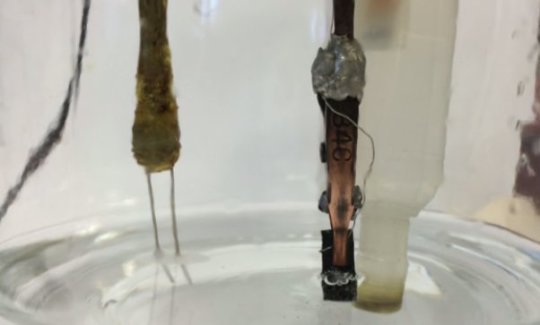
Breaking News
 Is The Government Coming For Our Seeds?
Is The Government Coming For Our Seeds?
 Looming ice storm could be among worst on record
Looming ice storm could be among worst on record
 The walls are actually closing in on Ilhan Omar and her husband…
The walls are actually closing in on Ilhan Omar and her husband…
 Tesla and XAI's Digital Agent Strategy
Tesla and XAI's Digital Agent Strategy
Top Tech News
 The day of the tactical laser weapon arrives
The day of the tactical laser weapon arrives
 'ELITE': The Palantir App ICE Uses to Find Neighborhoods to Raid
'ELITE': The Palantir App ICE Uses to Find Neighborhoods to Raid
 Solar Just Took a Huge Leap Forward!- CallSun 215 Anti Shade Panel
Solar Just Took a Huge Leap Forward!- CallSun 215 Anti Shade Panel
 XAI Grok 4.20 and OpenAI GPT 5.2 Are Solving Significant Previously Unsolved Math Proofs
XAI Grok 4.20 and OpenAI GPT 5.2 Are Solving Significant Previously Unsolved Math Proofs
 Watch: World's fastest drone hits 408 mph to reclaim speed record
Watch: World's fastest drone hits 408 mph to reclaim speed record
 Ukrainian robot soldier holds off Russian forces by itself in six-week battle
Ukrainian robot soldier holds off Russian forces by itself in six-week battle
 NASA announces strongest evidence yet for ancient life on Mars
NASA announces strongest evidence yet for ancient life on Mars
 Caltech has successfully demonstrated wireless energy transfer...
Caltech has successfully demonstrated wireless energy transfer...
 The TZLA Plasma Files: The Secret Health Sovereignty Tech That Uncle Trump And The CIA Tried To Bury
The TZLA Plasma Files: The Secret Health Sovereignty Tech That Uncle Trump And The CIA Tried To Bury
New, more efficient catalyst for water splitting

Physicists have discovered a catalyst that can split water into hydrogen and oxygen, composed of easily available, low-cost materials and operating far more efficiently than previous catalysts. That would solve one of the primary hurdles remaining in using water to produce hydrogen, one of the most promising sources of clean energy.
That would solve one of the primary hurdles remaining in using water to produce hydrogen, one of the most promising sources of clean energy.
"Hydrogen is the cleanest primary energy source we have on earth," said Paul C. W. Chu, TLL Temple Chair of Science and founding director and chief scientist of the Texas Center for Superconductivity at UH. "Water could be the most abundant source of hydrogen if one could separate the hydrogen from its strong bond with oxygen in the water by using a catalyst."
Chu and colleagues including physicists Zhifeng Ren and Shuo Chen, both of whom also are principal investigators with the Texas Center for Superconductivity at UH, report their discovery -- an efficient catalyst produced without the expensive precious metals most commonly used -- this week in the Proceedings of the Natural Academy of Sciences.

 Nano Nuclear Enters The Asian Market
Nano Nuclear Enters The Asian Market


